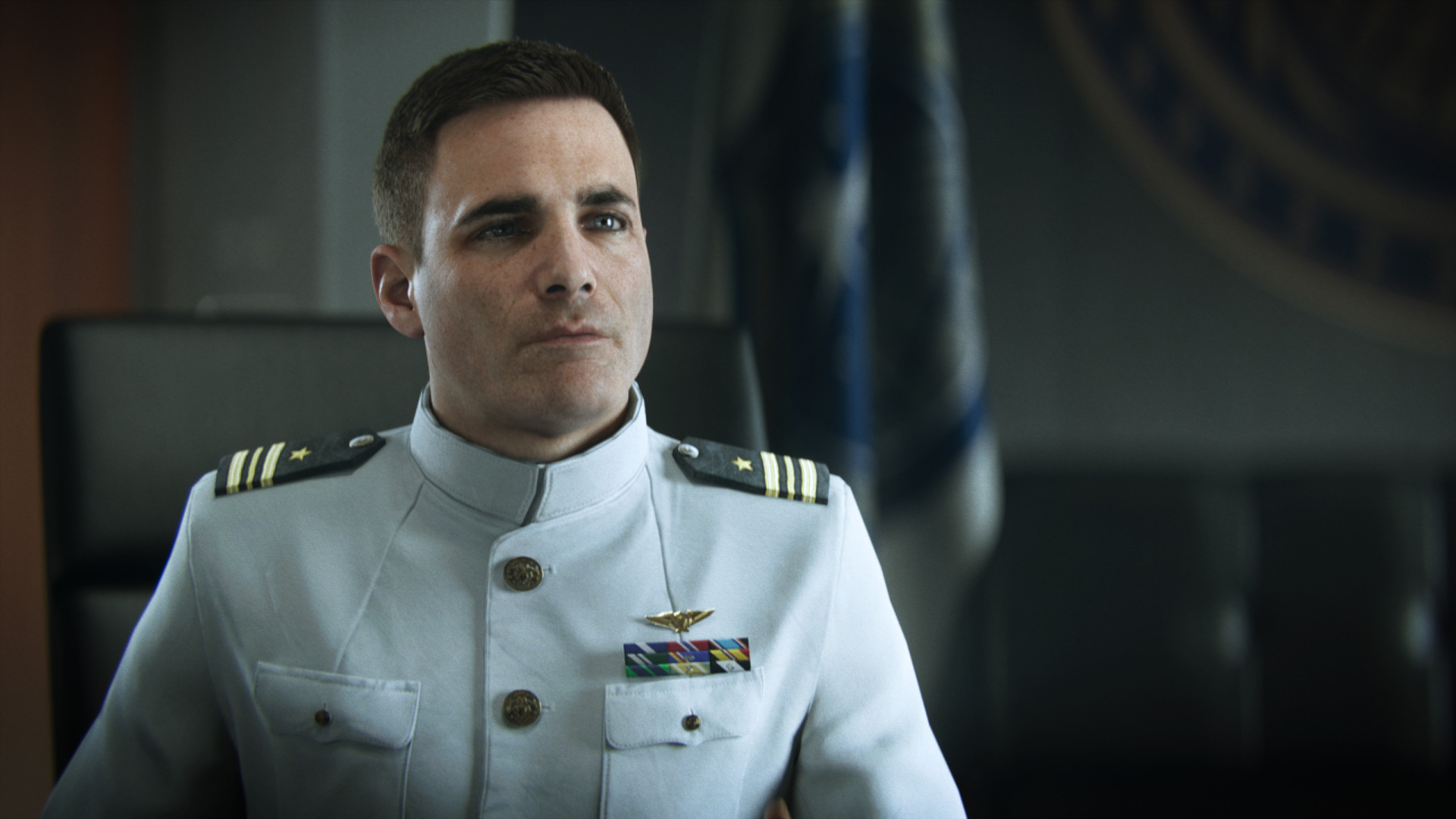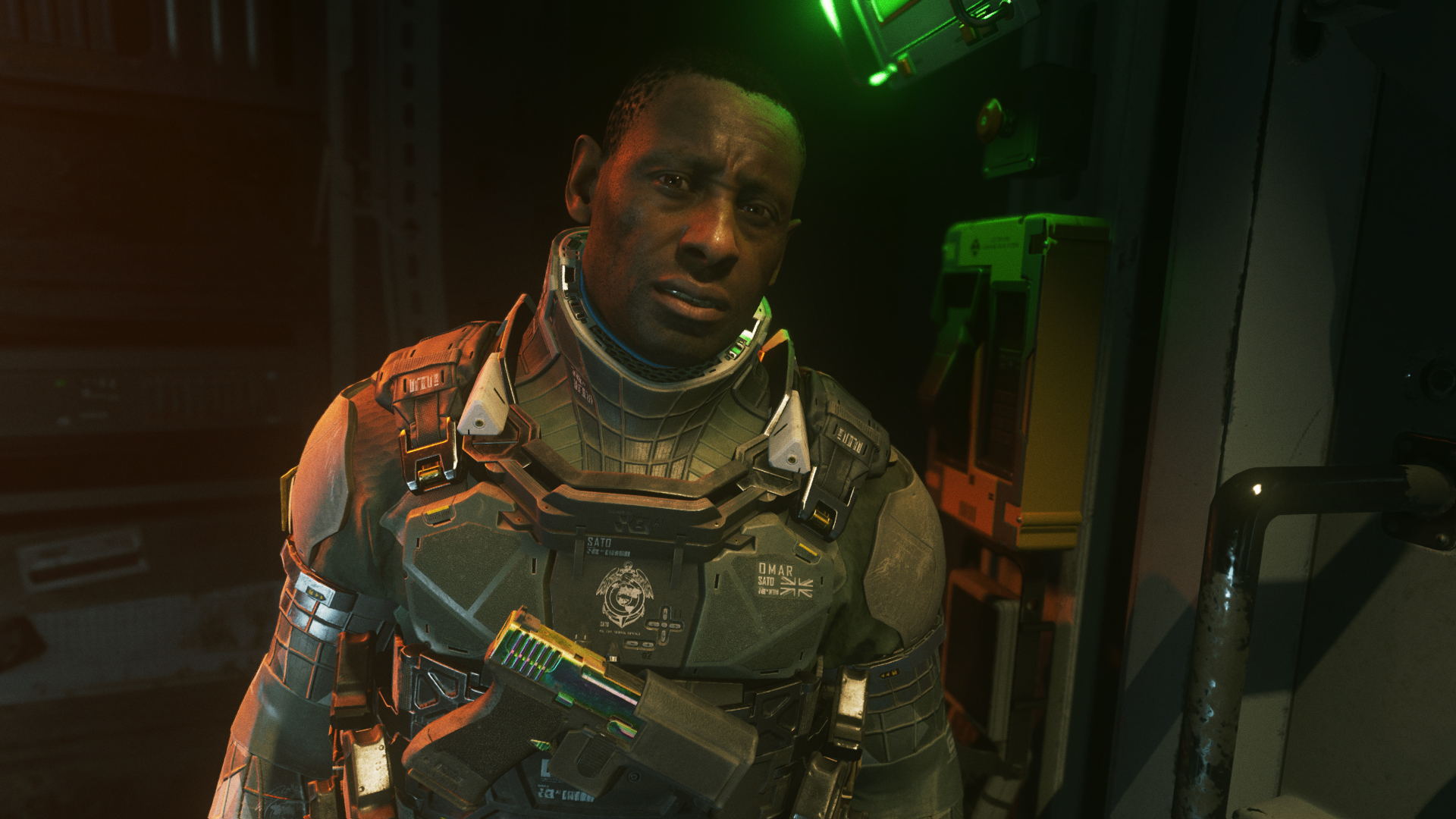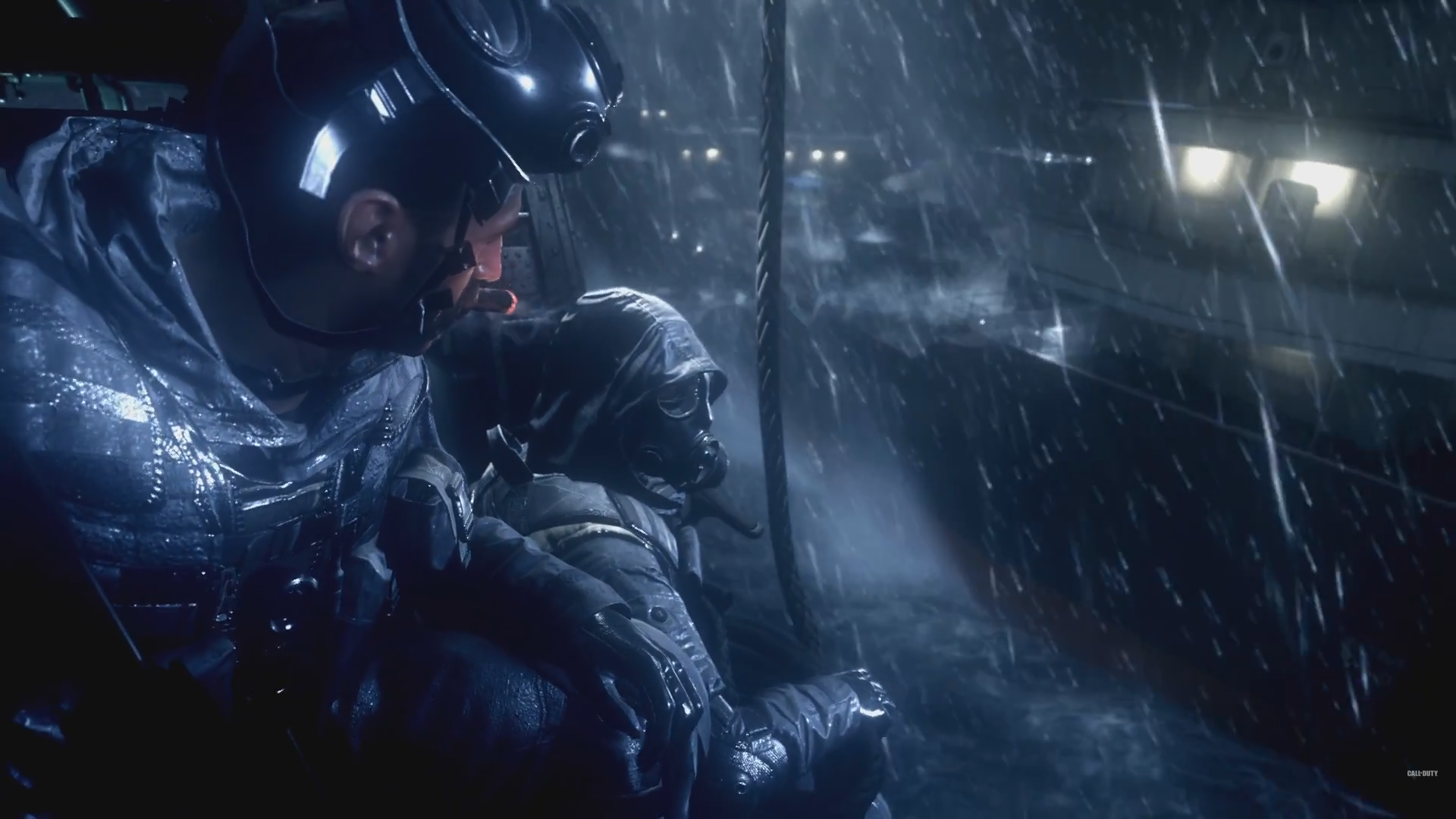Infinite Warfare's weepy ending sums up everything wrong with its story
Call of Duty was better when it tried to be fun and provocative, even when it failed.

Call of Duty: Infinite Warfare's sentimental credits sequence caught me by surprise. Not because my heart was wrenched out: It's just so wistful and self-serious and unearned that I laughed in bafflement of it.
I didn't have room to discuss the story much in my review, so here’s the gist of it (spoilers for the ending begin here). Protagonist Nick Reyes believes that his job as captain is solely to bring his crew home alive, despite his crew repeatedly pointing out how naive he's being, given that they're fighting for the fate of the earth. Of course, to save everyone, Reyes goes against this principle and does what has to be done—and also selflessly sacrifices himself. But its not over yet: as the credits roll, the player is invited to listen to voice messages from all the main characters who died under Reyes' command—the last words they spoke to their husbands, wives, and children.
My reaction at the time was to state bluntly in our work chat, “At the end of Infinite Warfare you get to listen to the last words all your dead friends said to their families,” to which the response was, “uh.” Because it is a weird way to end a Call of Duty, which is otherwise something Rolling Stone's Peter Travers would probably call "a thunderous, rollicking action ride!"
Infinite Warfare is a thematic shift for Call of Duty, to its detriment.
It feels like a plea from Infinite Warfare to be taken seriously. “Whew, it’s really been an emotional journey, hasn’t it?” Not really. I had no agency over the safety of the characters, and no deep connection to them. Maybe Reyes knew his cohorts well, but I mostly just shot up fascists with them. And Reyes is dead, anyway. He’s not being confronted with these families’ losses, which might have actually been interesting for his character, I am.
It's also odd that these characters are only being humanized after the fact, in the credits. Infinite Warfare gives us idols of righteousness and justice and compassion, kills them to save everyone in a grand climactic battle, and then, as if it had forgotten to check off a box marked ‘feels,’ suddenly thinks of the tragedy their families now face while the names of QA testers scroll by.
“I can tell you with the utmost confidence that I died for something right and just,” one says to his family, before going on to tell his daughter, “You will always be daddy’s little girl.” I suppose that more than any other game in the series, Infinite Warfare truly is about duty, and the call to it, and the sacrifice it requires—but its blunt emotional tools bounced right off me.
The tear-jerking voiceovers aren't the worst device ever, but they do generously exemplify why I didn’t like Infinite Warfare’s story. It grounds fantastical science fiction with mundane characters and unimaginative themes—sacrifice is both necessary and sad—taking itself desperately seriously instead of embracing the self-aware, over-the-top thriller it could be. Infinite Warfare is a thematic shift for Call of Duty, to its detriment.
Keep up to date with the most important stories and the best deals, as picked by the PC Gamer team.

Perhaps the main truth Call of Duty expressed is that the ends always justify the means so long as the means are a sick helicopter crash.
Call of Duty was once about fighting Russian ultranationalists and nuclear terrorists, and in Modern Warfare 2, an American general who sparks war between the US and Russia to encourage military enlistment and defense spending, insanely. As is typical of military thriller novels, CoD heroes weren't necessarily good people, they were just Doing What Had To Be Done to stop a nuclear apocalypse. They were born into an American pop culture fantasy that imagined that in the night, while we watched pundits bicker on TV, soldiers with glowing green goggles were out defeating terror at any cost. It's the same moral relativism story that's fueled eight seasons of 24, with who-knows-how-many seasons of 24: Legacy to go.
The main truth of Call of Duty is probably that the ends always justify the means so long as the means are a sick helicopter crash. It's never been hard-hitting commentary—I don’t really want it to be—and becomes laughable when it takes itself too seriously. I rolled my eyes during the marketing of Black Ops 2, for instance, when China’s supply of rare earth metals was painted as a shocking crisis that they’d uncovered.
But the series has confronted a few real things. Call of Duty 4’s 'Death From Above' mission, which eerily distances you from the killing, is probably given more credit than it's really due, but was effectively discomforting. Most notably, Modern Warfare 2’s infamous ‘No Russian’ mission, in which you're forced to participate in a mass shooting of civilians that mirrors the 2008 Mumbai attacks, feels even more callous today. Its slaughter wasn’t abstracted or fantastical or comical, as it is when you conquer a city in Civilization or detonate Megaton in Fallout 3, and it was heavily criticized for that. But positive or negative, it demanded an emotional response. It re-sparked questions of where the boundaries of taste in entertainment lie. And, more dispassionately, how playing a level solely meant to disturb and disgust, and not entertain, changed our experience of a narrative and our perspective on interactive violence.

Infinite Warfare, meanwhile, clearly wants to make some kind of statement, but desires absolute safety from any interpretation other than reverence for the troops. There are no twists or questionable actions, and its sullen captain enjoys the moral clarity of a righteous battle between good and evil—the villains literally hate freedom, and every single one of them is a fair target. The only ethical concern is whether or not Reyes should risk his sailor’s lives to save the entire population of the earth from enslavement, to which the answer is, uh, yeah. The resolution of Reyes’ moral struggle is obvious to everyone but him, because sacrificing the few to save the many is explicitly his purpose—that’s why he’s in the big spaceship shooting at the bad guys. He’s an unbelievable character with no chance of moral failure.
I wouldn’t want the job of trying to base entertainment on the moral hazard of drone strikes, either.
I don't blame Infinite Warfare for avoiding current events altogether and inventing an easy war to pick sides in. I wouldn’t want the job of trying to base entertainment on the moral hazard of drone strikes, either. But even when all they did was say, 'Hm, runaway capitalism might mean Kevin Spacey's private military will enslave us,' the headline-inspired fantasies of the previous games were easily more compelling, and at the same time took themselves less seriously than the space adventure with the funny robot.
Infinite Warfare's story could’ve succeeded as an escapist fantasy, or speculated on the moral quagmires of future war, but in the end it fancies itself a somber tribute to fallen soldiers. It's not a compelling one. A game which gave me choices as a commander and let me suffer the consequences might have had a real emotional effect, but Infinite Warfare’s tear-jerker ending is just a last ditch effort to convince me I experienced a story of emotional breadth, with real tragedy at its heart. I didn't.
Call of Duty isn’t actually afraid of trivializing war, but it now seems afraid to be seen as being trivial. It was better when it tried to be provocative, even when it failed at it, and it was better when it was happy to be a ridiculous serialized thriller, ending with a first-person cigar puff and a dramatic score. The ruthless Captain Price was a thousand times more fun than the conflicted Captain Reyes (RIP).

Tyler grew up in Silicon Valley during the '80s and '90s, playing games like Zork and Arkanoid on early PCs. He was later captivated by Myst, SimCity, Civilization, Command & Conquer, all the shooters they call "boomer shooters" now, and PS1 classic Bushido Blade (that's right: he had Bleem!). Tyler joined PC Gamer in 2011, and today he's focused on the site's news coverage. His hobbies include amateur boxing and adding to his 1,200-plus hours in Rocket League.

